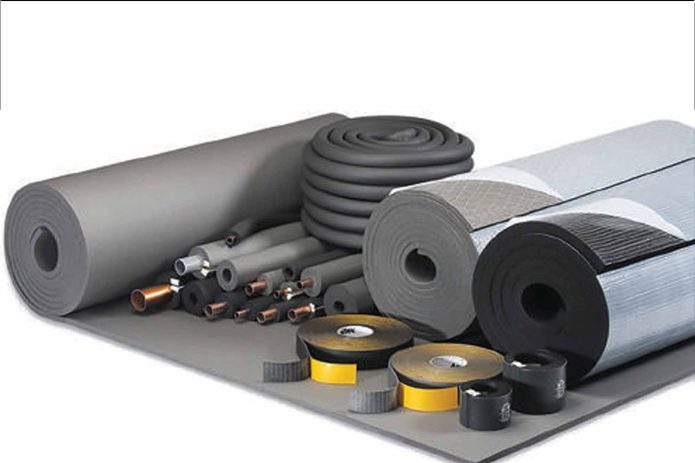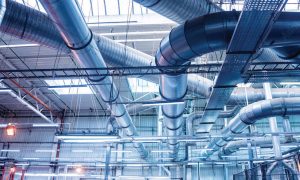Effective thermal insulation is crucial for optimising refrigeration systems, says Peyman Ezzati Rubber, R&D Director, ERA Co., Ltd. By considering key factors such as material choice, installation, maintenance, and moisture control, efficiency and energy savings can be maximised.
How do thermal insulation in refrigeration systems contribute to efficiency and temperature stabilisation?
Thermal insulation is crucial in refrigeration systems, utilising materials like polystyrene, polyurethane, fibreglass, rubber, silicates, and silicon-based substances like flowered silica. These materials possess effective thermal insulation properties, aiding in temperature stabilisation and preventing heat transfer between surfaces.
Applying thermal insulation in refrigeration systems results in more energy retention within the designated space while curbing heat loss. This facilitates easier regulation of ambient temperatures and reduces the necessity for energy consumption in heating or cooling processes. As a result, significant energy savings are achieved, and the lifespan of the refrigeration system is also increased.
How does thermal insulation contribute to preserving perishable goods in the cold chain?
The cold chain refers to the set of activities and procedures aimed at preserving perishable items from production to consumer delivery, involving transportation, storage, distribution, and retail. An essential component of cold chain management is the application of thermal insulation.
Thermal insulation is crucial for preserving perishable goods as it regulates their temperature and minimises heat exposure, thereby preventing spoilage. Various materials, such as polystyrene foam, polyethene foam, and polyurethane foam, each with different thicknesses and thermal properties, can be utilised for thermal insulation.
Using thermal insulation in the cold chain helps maintain the quality, shelf life, and safety of perishable goods. This proves particularly beneficial during transportation from production sites to warehouses, storage within warehouses, and final distribution to consumers.
On the other hand, cold chain management plays a vital role in ensuring the integrity of the perishable goods. By accurately controlling and coordinating these processes, the risk of spoilage is minimised, enhancing the brand’s quality and credibility. Overall, thermal insulation and proper cold chain management are important for preserving perishable goods and should be considered carefully.
How have advancements in thermal insulation technologies impacted the efficiency and lifespan of refrigeration equipment in the pharmaceutical and logistics industries?
In recent years, advancements in thermal insulation technologies have greatly impacted the efficiency of refrigeration equipment across various industries, such as pharmaceuticals and logistics. These advancements have brought about several key effects.
An important feature is the enhancement of thermal insulation quality. Improved characteristics in insulation materials have resulted in better temperature maintenance and reduced energy consumption within refrigeration systems, increasing the efficiency of refrigeration equipment. Moreover, the refinement of thermal insulation technologies has led to cost reductions associated with the implementation and maintenance of refrigeration systems, increasing equipment productivity and efficiency.
Furthermore, using advanced thermal insulation technologies reduces energy consumption and greenhouse gas emissions, which is beneficial for the environment.
Additionally, proper thermal insulation has been instrumental in prolonging the lifespan of refrigeration equipment. In general, advancements in thermal insulation technology increase the efficiency of refrigeration equipment in industries such as pharmaceuticals and logistics. These advancements are essential for enhancing productivity and promoting environmental protection.

How do insulators contribute to preventing condensation and ice formation within refrigeration systems?
Insulators are vital in preventing condensation and ice formation within refrigeration systems. They prevent energy loss due to ice condensation by reducing heat transfer from outside temperatures to inside temperatures. This results in reduced energy consumption and increased refrigeration system efficiency.
In recent years, due to increasing energy costs and environmental concerns, the use of insulation to reduce energy consumption and improve efficiency in refrigeration systems has received much attention. Advancements in insulation technologies have further refined this process, offering newer solutions that reduce energy consumption and ice density.
Consequently, incorporating insulation improves energy efficiency within refrigeration systems, resulting in reduced energy consumption. Beyond cost savings, this approach also aids in environmental preservation and reduces its adverse effects on the earth.
How do regulations and standards drive innovation in thermal insulation materials within the refrigeration industry?
Regulations and standards can help drive innovation in thermal insulation materials in the refrigeration industry through several avenues.
Firstly, these standards set benchmarks for quality and performance, compelling companies to invest in R&D to enhance their insulation materials to meet these requirements. This drive towards compliance increases innovation and leads to the development of more effective and efficient insulation materials.
Moreover, regulations encourage advancing existing technologies and exploring new ones in the thermal insulation sector. This technological progression creates smarter, more sustainable, and more efficient insulation materials that align with regulatory standards.
Furthermore, regulations and standards play a crucial role in ensuring the safety and well-being of workers and end-users using thermal insulation materials. Attention to these issues can inspire innovative solutions in the field.
Overall, adherence to regulations and standards in the refrigeration industry can help improve quality, safety, and technology development in the field of thermal insulation materials and increase innovation and progress in this field.
What are the key factors to optimise the effectiveness of thermal insulation in refrigeration systems?
Several key factors should be considered to optimise the effectiveness of thermal insulation in refrigeration systems. Firstly, choosing insulation materials tailored to specific requirements such as thickness, stability against environmental factors, and resistance to melting point and moisture can help improve the system’s performance.
Secondly, proper insulation installation at critical points, where heat transfer is more pronounced, enhances system efficiency. Thorough insulation coverage across all necessary areas, including joints and irregular surfaces, prevents heat leakage and helps improve system performance.
Periodic maintenance and timely repairs are essential to uphold the insulation’s effectiveness. This involves replacing or repairing damaged components, repairing defects, and safeguarding insulation from scratches and wear.
Effective moisture control is also crucial for maintaining insulation performance. Utilising appropriate materials and techniques, such as waterproof and moisture-resistant insulation, helps prevent efficiency loss and increases the system’s lifespan.
Adhering to these strategies can maximise the effectiveness of thermal insulation in refrigeration systems, leading to improved efficiency and energy savings.
Cookie Consent
We use cookies to personalize your experience. By continuing to visit this website you agree to our Terms & Conditions, Privacy Policy and Cookie Policy.















